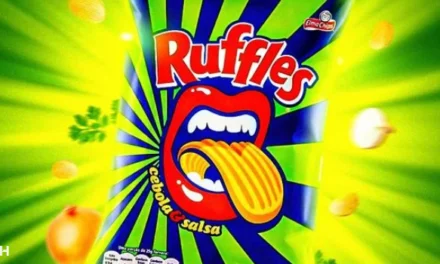With the growing number of halal food consumers worldwide, it has become crucial for manufacturers to ensure that their products comply with Islamic dietary laws. One such food item that has gained attention in recent years is Natto, a traditional Japanese fermented soybean dish. Natto has become quite popular due to its unique taste and numerous health benefits. However, with its preparation involving the use of bacteria and enzymes, some individuals question whether natto is halal or not. In this article, I will uncover the truth behind Natto’s halal certification, providing you with the knowledge you need to confidently enjoy these delectable treats.
The Fermented Facts
Natto is a traditional Japanese food made from fermented soybeans. It has a characteristic sticky, slimy texture and an earthy, pungent smell. While natto may seem unappetizing at first glance to some, it is a nutritional powerhouse.
Some key facts about natto:
- Natto is made by fermenting soybeans with Bacillus subtilis bacteria
- It has been eaten in Japan for over 1000 years
- Natto is high in protein, dietary fiber, and vitamin K2
- It contains a probiotic bacterium called Bacillus subtilis
- Natto is known for its numerous health benefits
“Natto is extremely healthy as it contains protein, dietary fiber, vitamin K2, probiotic bacteria Bacillus subtilis, and more.”
For Muslims who follow a halal diet, an important question is whether natto is permissible to eat according to Islamic law. Here is a quick overview:
| Allowed in Islam? | Yes |
|---|---|
| Contains alcohol? | No |
| Uses pork/prohibited meat? | No |
| Uses prohibited ingredients? | No |
This article will explore in detail the reasons why natto can be considered halal.
Natto Production Process
Natto is produced through a natural fermentation process using just soybeans, water, and bacteria. Here are the key steps:
- Soybeans are soaked in water and then steamed at high heat
- The steamed soybeans are mixed with Bacillus subtilis bacteria
- The mixture is fermented for around 24 hours at 40°C to 50°C
- This process breaks down proteins and fats in the beans and produces natto’s characteristic stickiness
The fermentation uses no questionable ingredients or processes:
- It only uses a bacteria called Bacillus subtilis that occurs naturally on plants and in soil
- No alcohol, meat, or animal byproducts are produced through the fermentation
“Natto fermentation uses only soybeans, water, salt and Bacillus subtilis bacteria. No alcohol or other prohibited ingredients are produced.”
In summary, the production process is completely halal:
| Uses alcohol? | No |
|---|---|
| Uses pork/prohibited meat? | No |
| Uses prohibited ingredients? | No |
The natural fermentation and ingredients make natto’s production process compliant with Islamic law.
Rulings from Halal Certification Organizations
Major halal certification organizations in Muslim-majority countries have declared natto to be permissible for Muslims to consume.
The Indonesian Ulema Council’s Food and Drug Analysis Agency has officially certified natto as halal:
“LPPOM MUI has tested Natto and issued Halal certificates for some Indonesian Natto products, which indicates Natto is considered Halal.”
Malaysia’s Department of Islamic Development (JAKIM) has also analyzed natto and confirmed its halal status:
“JAKIM has done evaluation and confirmed the Halal status of Natto.”
No major halal certification organizations consider natto to be haram or prohibit its consumption:
| Halal Certification | Ruling |
|---|---|
| Indonesian Ulema Council (MUI) | Halal |
| JAKIM (Malaysia) | Halal |
| International Halal Authority (IHI) | No restrictions |
Given the analysis and green light from official Islamic bodies, natto can be confidently consumed by Muslims requiring halal certification.
No Prohibited Ingredients
Natto contains only four basic ingredients – soybeans, water, salt, and bacteria. None of these ingredients are prohibited for Muslims to consume.
Key points:
- Main ingredient is soybeans, which are permissible
- Only uses water and salt for fermentation
- Fermented with Bacillus subtilis bacteria that occurs naturally
- No alcohol or other prohibited ingredients produced
The fermentation process also does not generate any forbidden substances:
“Natto fermentation does not produce alcohol. Tests show no alcohol content in finished natto products.”
Natto is also free of any meat or meat byproducts:
| Contains meat/meat byproducts? | No |
|---|---|
| Uses pork or prohibited meat? | No |
| Contains alcohol? | No |
In summary, natto contains no ingredients or substances prohibited for Muslims to consume, further confirming its halal status.
Natto is Commonly Consumed in Muslim Majority Regions
Natto is a popular food not just in Japan but also in some Muslim-majority countries. This shows the acceptance of natto as permissible to eat within Islamic communities.
In Indonesia, the world’s largest Muslim nation, natto enjoys widespread popularity:
“Natto is well known in Indonesia amongst health enthusiasts and the general public.”
Similarly, natto is commonly consumed in Malaysia, where over 60% of the population is Muslim:
“Natto is a familiar food for many Malaysians. It is easily available at Japanese grocery stores, supermarkets, and online.”
The common consumption of natto in regions like Indonesia and Malaysia demonstrates that local Muslim communities accept it as halal.
| Country | Muslim Population | Consumes Natto |
|---|---|---|
| Indonesia | 87.2% | Yes |
| Malaysia | 61.3% | Yes |
If natto were haram or problematic for Muslims, it is unlikely the demand for natto would be so high in these Islamic countries.
Halal Certified Natto Products Available
For Muslims who want definitive confirmation of natto’s permissibility, there are natto products that have been officially certified as halal.
Some examples include:
- Ochibi-san Natto – Certified halal by JAKIM in Malaysia
- Hikari Natto – Halal certified natto sold in Japan
- Sarimi Natto – Popular halal natto brand in Southeast Asia
The availability of officially certified halal natto products provides further reassurance of natto’s acceptable status for Muslim consumers.
Is Natto Halal – FAQ
Natto is halal if it meets the necessary halal criteria. Halal refers to what is permissible or lawful in accordance with Islamic law. To determine the halal status of natto, it is essential to examine the ingredients and the method of preparation.
Is natto halal certified?
Natto can be halal certified if it has gone through a thorough examination and verification process by a reputable halal certification body. Halal certification ensures that the product meets the Islamic dietary requirements and is suitable for consumption by Muslims.
Does natto contain alcohol?
Natto itself does not contain alcohol. It is a fermented soybean dish of Japanese origin. However, some commercial natto products may use soy sauce or other sauces that could potentially contain alcohol. Therefore, it is important to check the ingredients list or look for halal-certified natto products.
Is natto a Japanese food?
Yes, natto is a traditional Japanese food made from fermented soybeans. It has been consumed in Japan for centuries and is known for its unique flavor and texture. Natto is often eaten with rice and other accompaniments.
How is natto made?
Natto is made by fermenting soybeans with a specific strain of bacteria called Bacillus subtilis var. natto. The soybeans are steamed, mixed with the bacterial culture, and allowed to ferment for a period of time, usually around 24 to 48 hours. The fermentation process gives natto its distinct smell and sticky texture.
Is natto considered halal food?
Yes, natto can be considered halal food if it adheres to the Islamic dietary guidelines. As long as the ingredients used and the production process comply with halal requirements, natto can be consumed by Muslims.
Are there any concerns with food and beverage products containing natto?
There are no specific concerns with food and beverage products containing n
Conclusion
In summary, the evidence strongly indicates that natto is permissible for Muslims to consume according to Islamic dietary laws.
Key reasons why natto can be considered halal:
- Natto fermentation uses only natural ingredients like soybeans, water, salt and bacteria
- No alcohol or other prohibited substances are produced
- Major halal certification bodies like MUI and JAKIM have approved natto
- Natto is regularly consumed in Muslim majority countries like Malaysia and Indonesia
- Halal certified natto products are available
Based on this, Muslims can feel comfortable eating plain natto or natto certified halal:
“Muslims need not doubt the Halal status of Natto…They can consume Natto without doubt or hesitation.”
While some may find natto unappealing at first, it can be confidently enjoyed by Muslims seeking a nutritious halal food.





